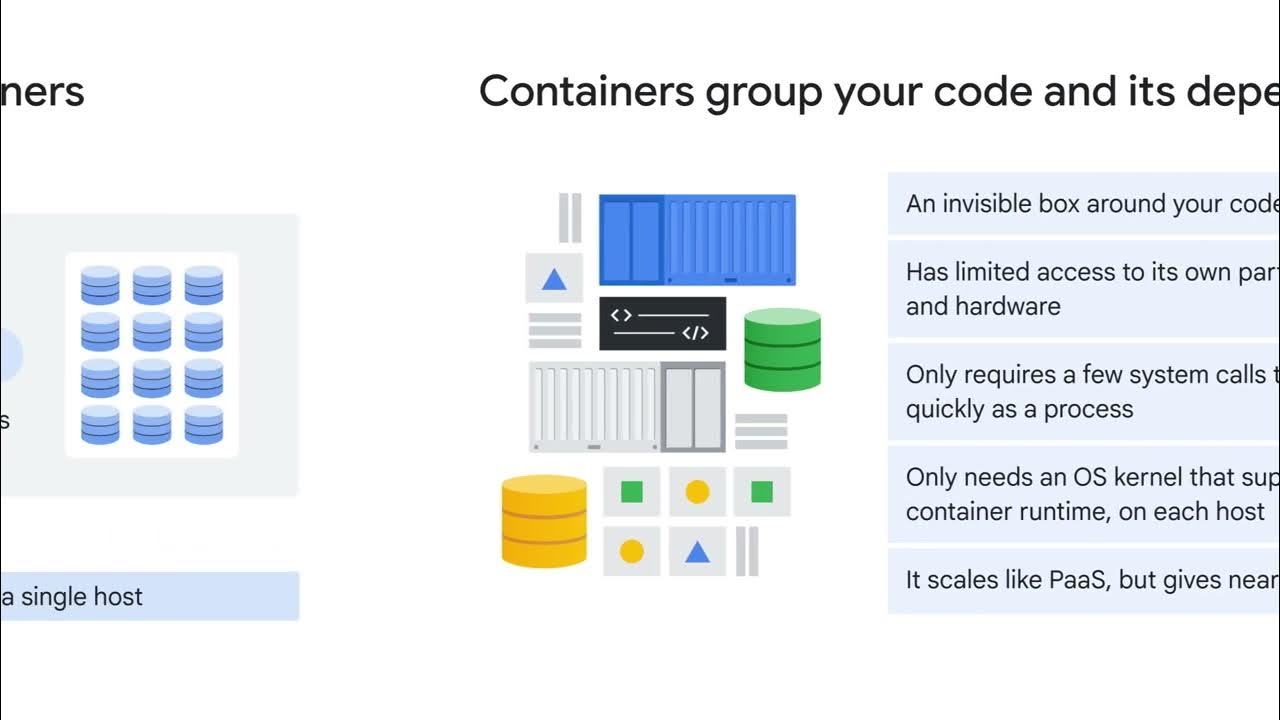Não Use Docker Compose em Produção! Eis o Porquê
Summary
TLDRIn this video, the speaker warns against using Docker Compose in production environments due to its lack of key features like container orchestration, automated scaling, error handling, and monitoring. Through personal experience, the speaker shares how they transitioned to Kubernetes for better scalability, resource management, and automatic recovery. The video emphasizes the importance of using a proper container orchestrator like Kubernetes or Docker Swarm to maintain stability and prevent downtime in high-traffic applications. The speaker's advice is clear: Docker Compose is great for development but risky in production.
Takeaways
- 😀 Docker Compose is excellent for local development, but it's not designed for production environments.
- ⚠️ Docker Compose lacks key features for production, such as automatic failover, load balancing, and scaling.
- 💡 A container orchestrator like Kubernetes is essential for managing high-traffic production systems effectively.
- 🔧 Docker Compose does not manage application replicas, which means it won't scale or recover from failures automatically.
- 🛠️ In production, Docker Compose requires manual intervention for tasks like container restarts and monitoring failures.
- 🚀 Kubernetes offers automatic scaling, health checks, and failover, ensuring high availability and stability in production environments.
- 💥 Silent errors in production are dangerous, as Docker Compose lacks built-in monitoring and alerting systems.
- 🔄 Kubernetes enables rolling updates, allowing for seamless application updates without downtime or user disruption.
- 📈 Kubernetes can scale applications based on resource usage (e.g., memory and CPU), ensuring efficient resource allocation.
- ⚙️ Docker Compose may lead to higher costs and service downtime if any issues arise in production, whereas Kubernetes minimizes these risks.
- 💬 The speaker’s experience emphasizes the importance of using a proper container orchestrator like Kubernetes for scalability and reliability in production.
Q & A
Why is Docker Compose not recommended for production environments?
-Docker Compose is designed for local development, not for production. It lacks features like auto-scaling, load balancing, and automatic error recovery, which are essential for handling high-volume applications in production.
What is the role of a container orchestrator?
-A container orchestrator manages container deployment, scheduling, scaling, load balancing, failure recovery, and rolling updates, ensuring high availability and minimal disruption in production environments.
What are the dangers of using Docker Compose in high-traffic production systems?
-Docker Compose cannot handle issues like memory spikes, traffic balancing, or application restarts on failure. In high-traffic production systems, this can lead to system crashes, unnoticed failures, and downtime.
What are the main features that Kubernetes provides over Docker Compose?
-Kubernetes offers automatic scaling, error handling, monitoring, health checks, rolling updates, and automatic failure recovery, which Docker Compose lacks. It ensures higher resilience and availability for production systems.
What happened when the speaker used Docker Compose in their infrastructure?
-The speaker’s infrastructure, relying on Docker Compose, faced critical issues like manual intervention for service restarts, no monitoring, and no automatic error handling, which led to performance risks and system instability.
How does Kubernetes handle failures and resource spikes?
-Kubernetes can automatically create new container instances if resource usage exceeds certain thresholds, such as memory or CPU limits. If a container fails or uses too many resources, Kubernetes can restart it or create a new one without manual intervention.
What is the importance of configuring alerting systems in production environments?
-Alerting systems help detect failures, resource spikes, and security issues in real-time, preventing silent errors that could cause downtime or unnoticed performance problems, which is crucial for maintaining a stable production environment.
What was the issue with the ‘toolmaker’ hired by the speaker?
-The ‘toolmaker’ used Docker Compose for high-volume automation tools like N8N, which lacked monitoring and error recovery features. This setup was not suitable for the speaker’s production needs, leading to potential risks in their infrastructure.
Why is Kubernetes' gradual update process important for production environments?
-Kubernetes' gradual update process ensures that only healthy containers are updated, preventing downtime for users. It checks if the application and its dependencies are ready before updating, reducing the risk of breaking the system.
What advice does the speaker give regarding Docker Compose in production?
-The speaker advises against using Docker Compose in production environments, regardless of the application’s size, because it lacks critical features like load balancing, error handling, and automated failure recovery that are needed for stability and performance in production systems.
Outlines

هذا القسم متوفر فقط للمشتركين. يرجى الترقية للوصول إلى هذه الميزة.
قم بالترقية الآنMindmap

هذا القسم متوفر فقط للمشتركين. يرجى الترقية للوصول إلى هذه الميزة.
قم بالترقية الآنKeywords

هذا القسم متوفر فقط للمشتركين. يرجى الترقية للوصول إلى هذه الميزة.
قم بالترقية الآنHighlights

هذا القسم متوفر فقط للمشتركين. يرجى الترقية للوصول إلى هذه الميزة.
قم بالترقية الآنTranscripts

هذا القسم متوفر فقط للمشتركين. يرجى الترقية للوصول إلى هذه الميزة.
قم بالترقية الآنتصفح المزيد من مقاطع الفيديو ذات الصلة

Why I Regret Ignoring Docker Swarm for 10 Years

100+ Docker Concepts you Need to Know

What Is Kubernetes - The Engine Behind Google's massive Container Systems | KodeKloud

Customize Dev Containers in VS Code with Dockerfiles and Docker Compose

Containerizing and Orchestrating Apps with GKE

Docker - Containerize a Django App
5.0 / 5 (0 votes)
